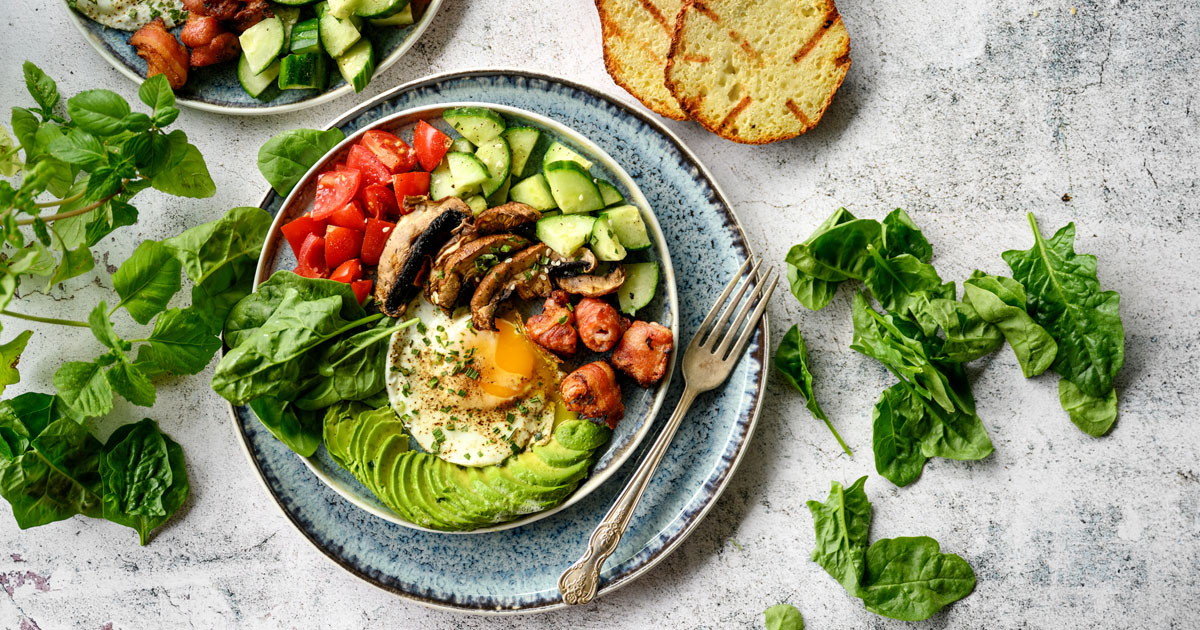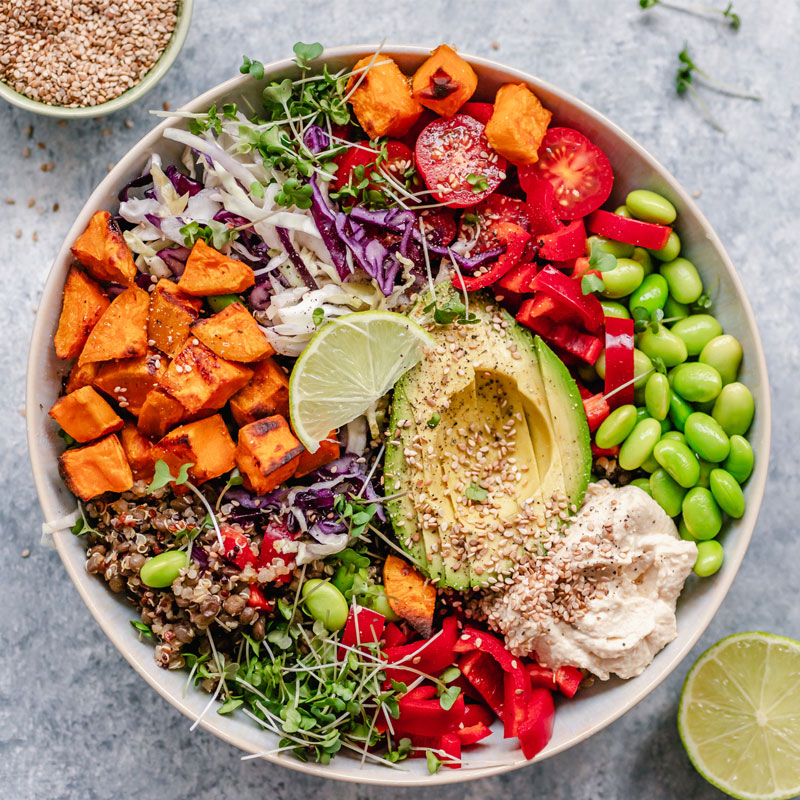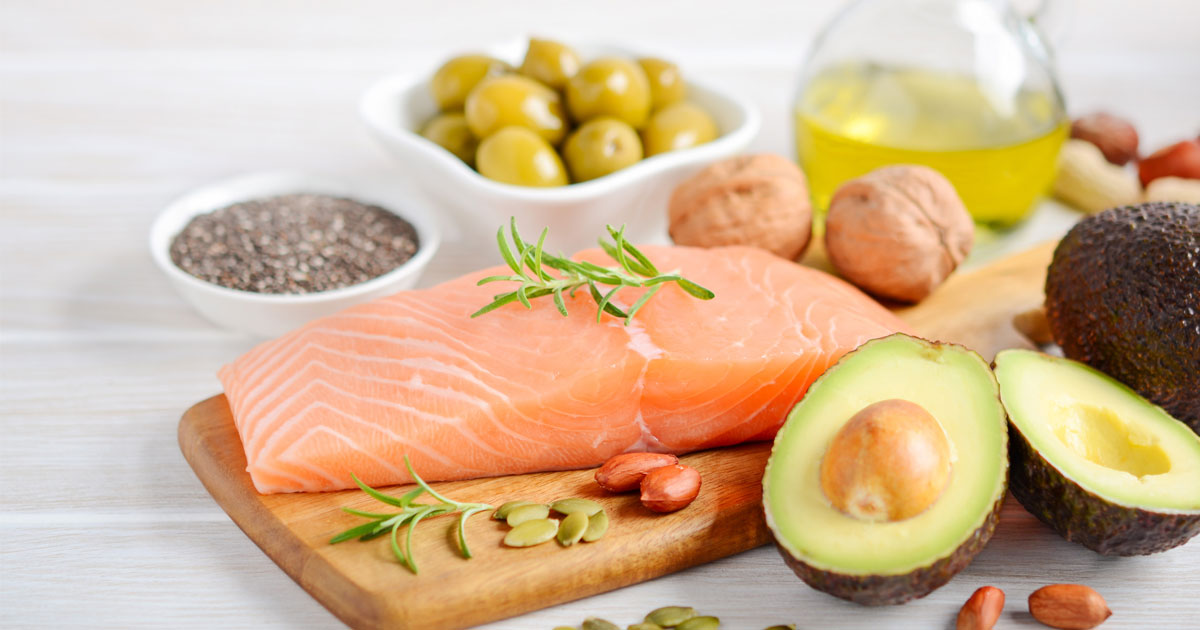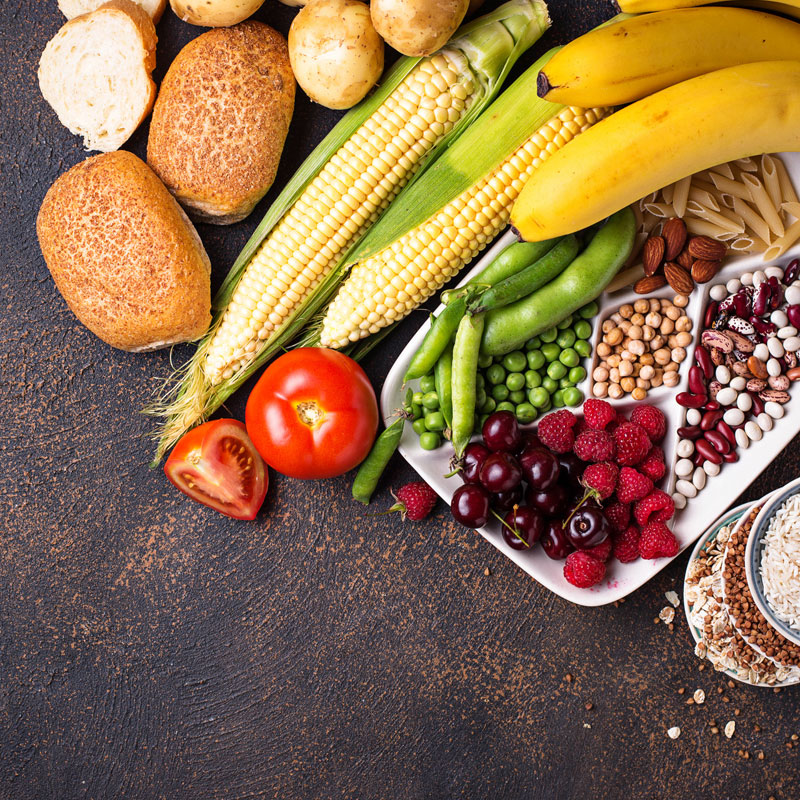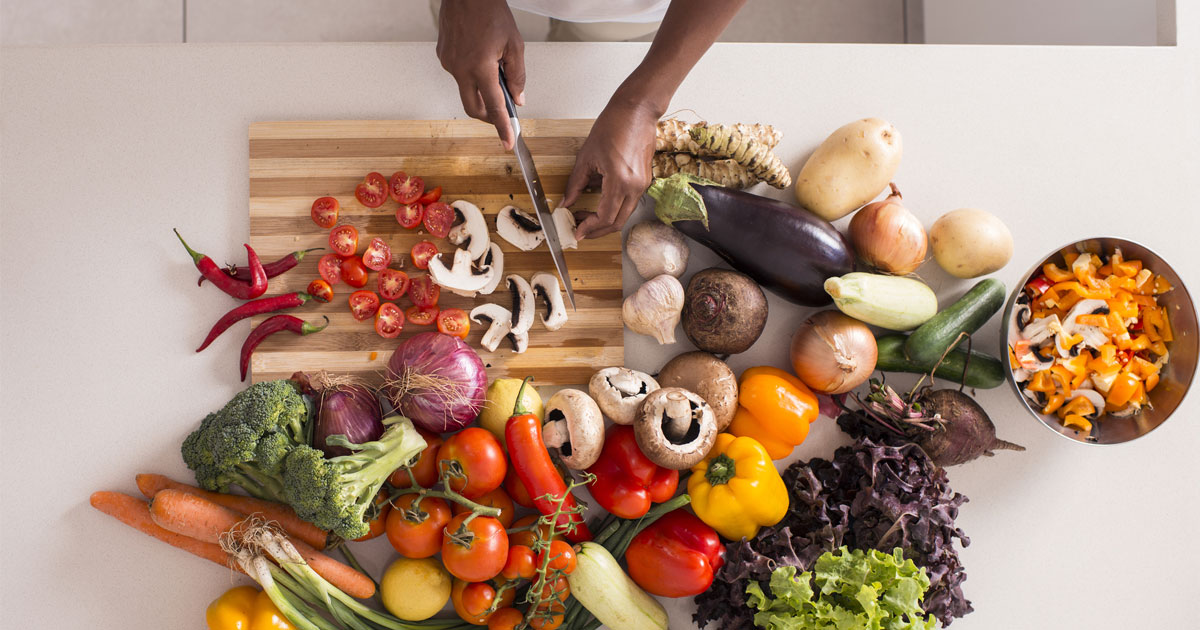A balanced, nutritious diet is an important part of living a healthy life. Ensuring that your body has the nutrients you need can give you energy, help you sleep better, and keep your weight and body composition consistent. This is especially true if you are recovering from substance use disorder.
It can be easy to assume that when you are in recovery from substance use disorder, it is best to allow yourself to indulge in the foods or drinks you are craving – after all, aren’t you depriving yourself of enough? However, this can actually delay or derail your recovery because addiction can make your metabolism slower, change your outward appearance, and impact the overall function of your internal body systems. Maintaining a nutrient-rich diet while you are in recovery is a great way to heal your mind and body while you recover.
Addiction and Nutrition Are Connected
It may not always seem like an obvious connection, but addiction and nutrition issues go hand in hand. When you are in the middle of a substance use disorder, you may face physical changes to your body that can impact your nutrition. Those changes can be difficult to combat as you recover. Similarly, how you approach nutrition during your recovery may impact your progress. Understanding how addiction and nutrition are connected can help guide you during your recovery.

Addiction Impacts Nutrition
Individuals dealing with substance use disorder can face countless challenges when it comes to nutrition. The substance you are consuming can have serious effects on your body and nutrition. For example, if you struggle with alcoholism, many of your calories during the day will likely come from alcohol versus nutrient-rich foods. This can impact your digestive system, which means your body will further struggle to get the nutrients it needs throughout the day. Alternatively, if you struggle with an addiction to stimulants, your appetite may weaken over time. Thus, you risk not consuming the calories and nutrients you need each day for your body to function.
In addition to the physical toll addiction can have on your daily nutrition, it can also impact your mental approach to nutrition. When you are wrapped up in substance use disorder, you likely do not have the care or resources to commit to eating nutritious foods. In the midst of addiction, you may spend the majority of your money on your chosen substance rather than making sure you have access to healthy foods. You could also be so wrapped up in the feelings of euphoria from the substances you take that you simply forget to eat. Together, these circumstances can severely impact your health.
Nutrition Impacts Recovery
The connections between nutrition and addiction also continue into recovery. As you are coming out of substance use disorder, your body will be dealing with symptoms connected with withdrawal from substances. You may experience increased cravings for a substance as you recover. It can be easy to fall into a pattern of giving in to unhealthy food choices when those cravings pop up so that you do not begin using any substances again. Satisfying those cravings with things that do not enhance your nutrition can impact your quality of sleep, keep your energy levels low, and make it harder for your body to recover physically from substance use.
Conversely, attention to proper nutrition during recovery can help you address the deficits you may have experienced while using. Whether you are dealing with significant weight loss from excessive substance use or low energy levels from a lack of nutrients during your recovery, it is clear that nutrition and addiction recovery go hand in hand.
Why You Need a Balanced Diet in Addiction Recovery
Ensuring that your body has the nutrients you need as you are recovering from substance use disorder can make the process easier on your body and mind. With the proper nutrients, you can begin to restore your organs, ensure medications and treatments are able to work to their best, and devote the proper attention and cognition to your recovery work.
Foods and Nutrients for Addiction Recovery
There are many different nutrients that can boost your strength and wellness when you are on the path to recovery. At Lilac Recovery Center, we work with you to determine what your body needs as you recover and provide nutritious, fulfilling meals to meet these requirements. Some of the nutrients and foods that will be incorporated into your diet include:
Whole Foods
Foods that have not been overly processed are often considered whole foods. This often includes fresh fruit, a variety of vegetables, eggs, shellfish, and nuts. When foods are not overly processed, many of the important nutrients they carry, like fiber and natural sugars, are still intact. Incorporating a variety of these foods into your daily diet can help you find simple, delicious ways to give your body the things that will help you stay alert, avoid mood swings, and satisfy cravings in a healthy way.
Omega-3 Fatty Acids
Unlike many other nutrients, your body cannot create omega-3 fatty acids on its own. Instead, you must get them from the food you consume. At Lilac Recovery Center, you will learn to incorporate foods like salmon, nuts, olive oil, flaxseed, and leafy greens into your diet to ensure you get the omega-3 fatty acids you need. When your body has the proper amount of omega-3s, your heart will be stronger, you may deal with less inflammation, and you can lower your risk of blood clots.
Protein
When your body is recovering from substance use, it is essential to introduce foods that will not only build up your nutrition but also help you combat other potential health risks. Protein-rich foods like tofu, turkey, eggs, seeds, and seafood can give your body the nutrients it needs to prevent heart disease. These foods are also another way to ensure that your body has the omega-3 fatty acids it needs.
Complex Carbohydrates
The two primary types of complex carbohydrates are starches and fiber. When you are at Lilac Recovery Center, you will work with a trained medical professional to determine what your body needs and find ways to incorporate complex carbohydrates like corn, broccoli, black beans, berries, and whole wheat bread into your diet.
At Lilac Recovery Center, we understand the importance of simple, sustainable changes to help you on your path to recovery. We will work with you to ensure you have high-quality, whole foods that will give you the energy and nutrients you need to support your recovery from substance use disorder. Every client’s needs are different, so our medical team will work with you to find the nutrition to help your body heal in addiction recovery.

Nutritional Deficiencies in Addiction Recovery
The path to recovery from substance use disorder is not an easy one. You will face mental and emotional challenges as you work through your recovery, but you will also face physical challenges as you strive to rebuild your nutrition and wellness. Having a deeper understanding of the nutritional deficiencies you are dealing with can help you create a plan, along with the experienced medical team at Lilac Recovery Center, to help you achieve your goals.
Lab Testing
One of the first and most difficult stages of addiction recovery is the detox process. As the substances begin to leave your system, you can experience severe side effects, including mood swings, excessive sweating, the inability to sleep, diarrhea, and possibly seizures. The luxury addiction treatment at Lilac Recovery Center includes individualized lab testing at the beginning of your time to help us understand where your body has the most need and what nutrients may be deficient or missing.
Once these tests have been completed, we will craft a treatment plan that provides you with therapy, medical support, physical wellness support, and more to ensure your recovery is as effective as possible. Regular testing can help you better understand how you are progressing and what changes may need to be made to your treatment plan.
Dietary Supplements
Addressing your nutritional needs is an important part of a treatment plan when you are recovering from substance use disorder. While adding whole foods, complex carbohydrates, protein, and omega-3 fatty acids into your diet can boost your overall nutrition, there may be some areas where you need additional support. Adding dietary supplements like vitamin D, iron, zinc, and melatonin into your daily nutrition routine can provide additional assurance that your body is getting all of the nutrients you need to help make your recovery successful.
Working With a Healthcare Provider
You should not have to face your path to recovery alone. Lilac Recovery Center provides individualized treatment for every client in a comfortable, safe, and luxurious environment. One of the essential services our team offers is pairing you with a healthcare provider to create a personalized treatment plan that includes detox, physical wellness, nutrition, and other support so that all of your nutritional needs are met and you have resources and guidance to help you on your addiction recovery journey.
Ways to Incorporate Nutritious Foods Into Your Daily Diet
Nutrition and addiction recovery are tied together in many different ways, and we want to ensure that you have everything you need to be successful while you are at our luxury treatment center and once you leave. This includes finding the regular habits and daily practices that can help you discover nutrition to help your body heal in addiction recovery.
Here are three tips to help you incorporate nutritious food into your diet.
Grocery Shopping
One of the biggest challenges of adding nutrient-rich foods into your diet is knowing what the best food choices are. The delicious, nutritious meals at Lilac Recovery Center can give you a clearer idea of what foods will give your body the nutrients it needs and how you can incorporate them into your diet. You will be able to use the information you receive during your time with us to make grocery lists to ensure you are stocking up on nutritious and delicious foods.
Meal Planning
Another major challenge to maintaining your nutrition during recovery from substance use disorder is putting meals together that are balanced and give you the nutrients you need. Meal planning is one way to overcome this hurdle. Whether you make a plan for what meals you want to have each day, plan menus based on specific cultures or types of food, or cook and package your meals ahead of time, meal planning minimizes stress around getting your nutrients.
Healthy Snacks
It can be easy to reach for cookies, candy, chips, or soda when you need a snack and do not want to take the time to make something. Giving in to those cravings too often can derail your nutrition plan and potentially create challenges for your recovery. Keeping healthy snacks around, like fresh fruit, nuts, and vegetables, can help you maintain your healthy habits while you recover.
Establish A Nutritious Diet for Addiction Recovery
On your path to addiction recovery, nutrition can be an unexpected obstacle. If you create an intentional plan to address your nutritional deficiencies, add any necessary dietary supplements into your routine, and work with a healthcare provider during your recovery journey, you will be better equipped to overcome any nutrition struggles. Lilac Recovery Center can provide guidance and support in a luxury treatment setting in San Diego. Read more about our services related to physical health and addiction recovery in San Diego.
References :-
- https://pubmed.ncbi.nlm.nih.gov/28806640/
- https://www.hsph.harvard.edu/nutritionsource/what-should-you-eat/fats-and-cholesterol/types-of-fat/omega-3-fats/

CADC II, Certified AOD Counselor
Nora Jenkins has made the quality and committed care we provide at Lilac Recovery Center possible. Nora is experienced in providing care to assist in rebuilding relationships to support healthy, long-term recovery. Her professional background includes clinical management, program administration, and counseling.
